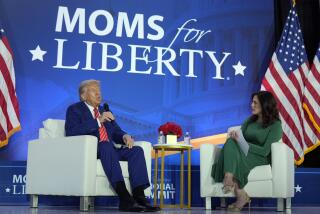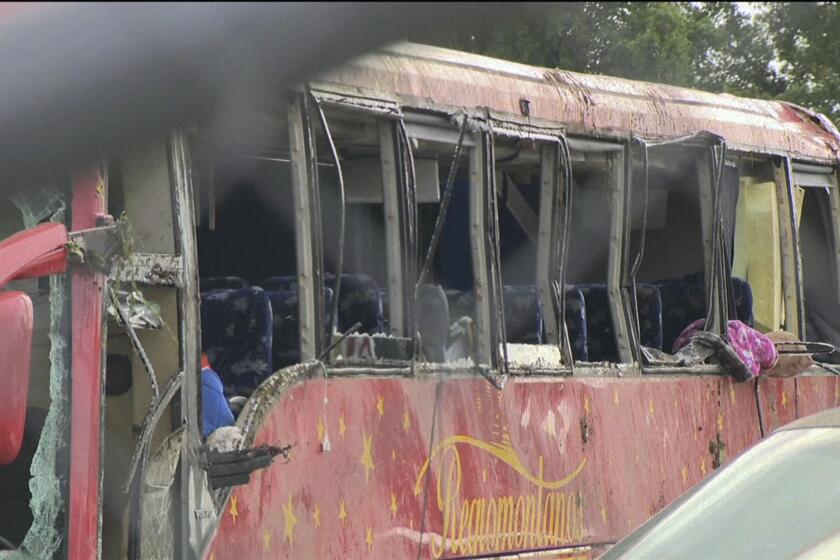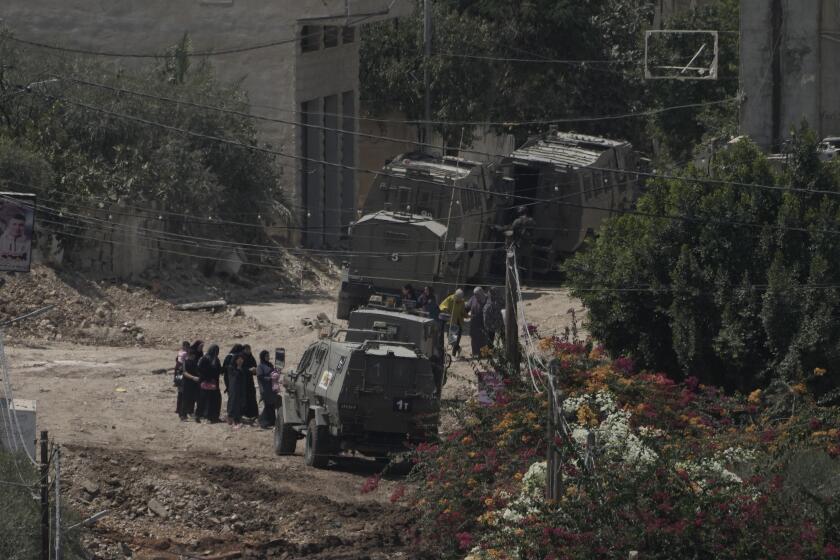U.N. Blueprint for a More Secure World
Over the last 10 years or so, the world has come much closer to agreeing on what is needed to achieve development and break the grip of extreme poverty. Three key international meetings -- the U.N. Millennium Summit in 2000 and the U.N. conferences in Monterrey, Mexico, and Johannesburg, South Africa, in 2002 -- have led to a remarkable degree of consensus on how to grow economies, alleviate poverty and protect the environment. Whether we will achieve the eight “millennium development goals” we set for ourselves by the target date of 2015 is still uncertain, but at least we have agreement on what needs to be done.
Regrettably, we are still some way from a similar consensus on how to make the world more secure. There, things have, if anything, gotten worse in the last few years. A moment of global solidarity against terrorism in 2001 was quickly replaced by acrimonious arguments over the war in Iraq, which turned out to be symptomatic of deeper divisions on fundamental questions. How can we best protect ourselves against terrorism and weapons of mass destruction? When is the use of force permissible -- and who should decide? Is “preventive war” sometimes justified, or is it simply aggression under another name? And, in a world that has become “unipolar,” what role should the United Nations play?
Those new debates came on top of earlier ones that arose in the 1990s. Is state sovereignty an absolute principle, or does the international community have a responsibility to prevent or resolve conflicts within states -- especially when they involve genocide or comparable atrocities?
A year ago, hoping to find answers to such questions, I appointed a panel of 16 distinguished men and women from all parts of the world and from different fields of expertise -- political, military, diplomatic, economic, social. I asked them to assess the threats facing humanity today and recommend how we need to change, in both our policies and our institutions, to meet those threats.
Today, they will deliver their report, “A More Secure World -- Our Shared Responsibility,” with 101 recommendations for forging a common response to common threats.
The report reaffirms the right of states to defend themselves, including preemptively when an attack is imminent, and says that in “nightmare scenarios” -- for instance, those combining terrorists and weapons of mass destruction -- the U.N. Security Council may have to act earlier, more proactively and more decisively than in the past. And it offers guidelines to help the Security Council decide when to authorize the use of force -- both in dealing with external threats and in exercising its responsibility to protect people from mass atrocities committed within the borders of a sovereign state.
No less useful is the panel’s achievement in reaching a consensus on a definition of terrorism -- something that U.N. members have been unable to do over the years. It may not seem like a difficult term to define but, in fact, we were stymied. Some argued that any definition must include the use of armed force against civilians by states, as well as by private groups, and some -- especially Arab and Muslim states -- insisted that the definition must not override the right of peoples to resist foreign occupation.
But the panel members (including several eminent Muslim representatives) point out that international law as it stands is already clear in condemning large-scale use of force against civilians by states, and they agree “there is nothing in the fact of occupation that justifies the targeting and killing of civilians.”
If governments follow their lead -- as I hope they will -- it will be much easier for the U.N. to develop a comprehensive counter-terrorism strategy and for me to take the lead in promoting such a strategy, as the report asks me to do.
The report also contains a welter of practical proposals to prevent nuclear proliferation, improve biosecurity and make the U.N. itself more effective, notably in prevention and peace-building.
Among the most significant changes recommended is the expansion of the Security Council from 15 to 24 members -- either by adding six new permanent members, without veto power, or by creating a new category of four-year, renewable seats, which would be regionally distributed. I believe either formula would strengthen the council’s legitimacy and authority in the eyes of the world by bringing its membership closer to the realities of the 21st century -- as opposed to those of 1945, when the U.N. Charter was drafted.
Above all, the report clearly spells out the interconnectedness of our age, in which the destinies of peoples and the threats they face are interwoven. Not only is a threat against one nation a threat against all, but failure to deal with one threat can undermine our defense against all the others. A major terrorist attack in the heart of the industrial world can devastate the world economy, plunging millions of people back into extreme poverty; the collapse of a state in the poorest part of the world can punch a gaping hole in our common defense against terrorism and epidemic disease.
Few people could read this report and doubt that making this world more secure is a shared responsibility, as well as a shared interest. It tells us how to do this and why we must act now. It puts the ball firmly in the court of the world’s political leaders. It is for them to negotiate the details, but I strongly urge them to act on the main thrust of the recommendations.
More to Read
Sign up for Essential California
The most important California stories and recommendations in your inbox every morning.
You may occasionally receive promotional content from the Los Angeles Times.






